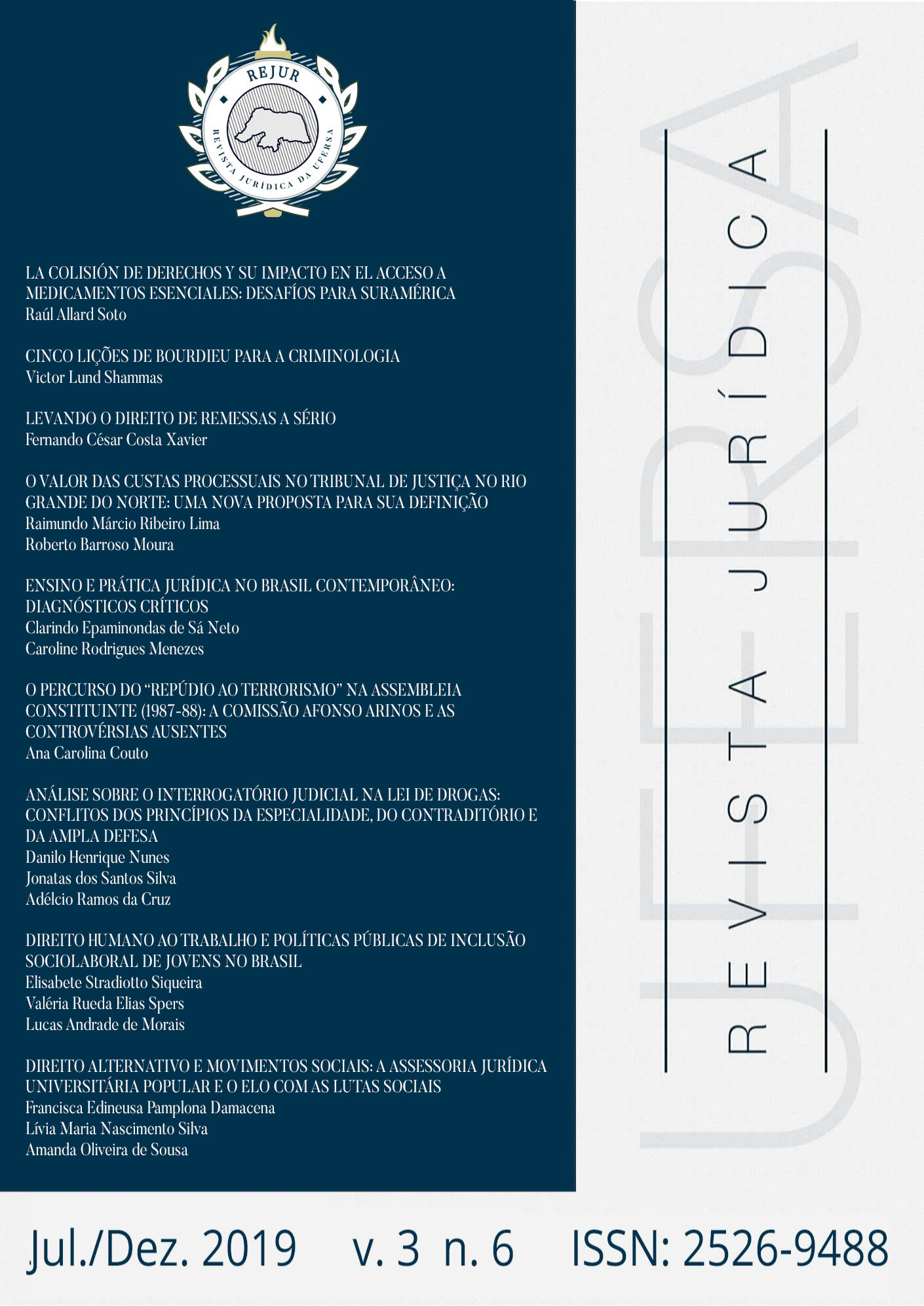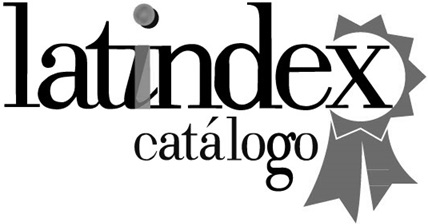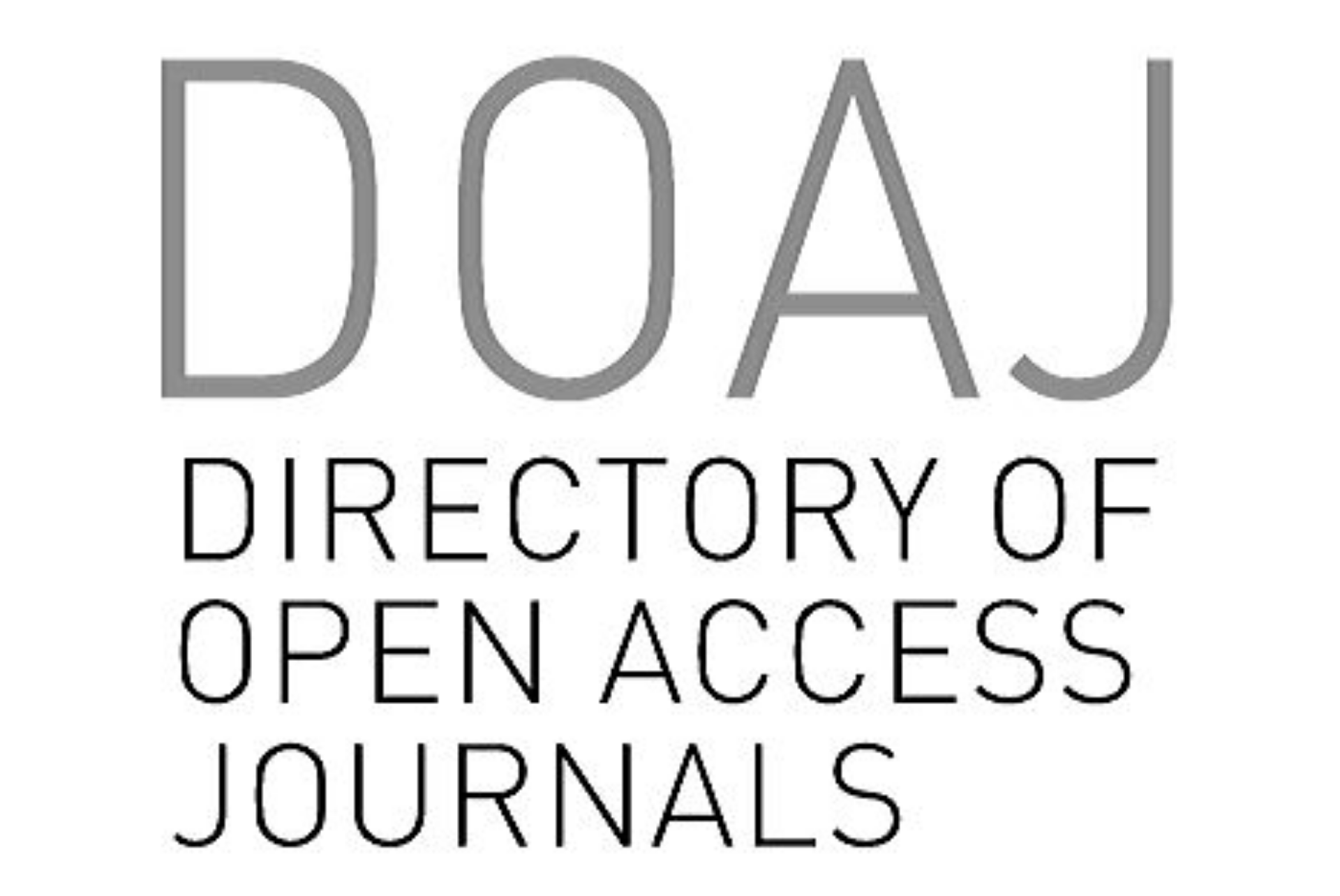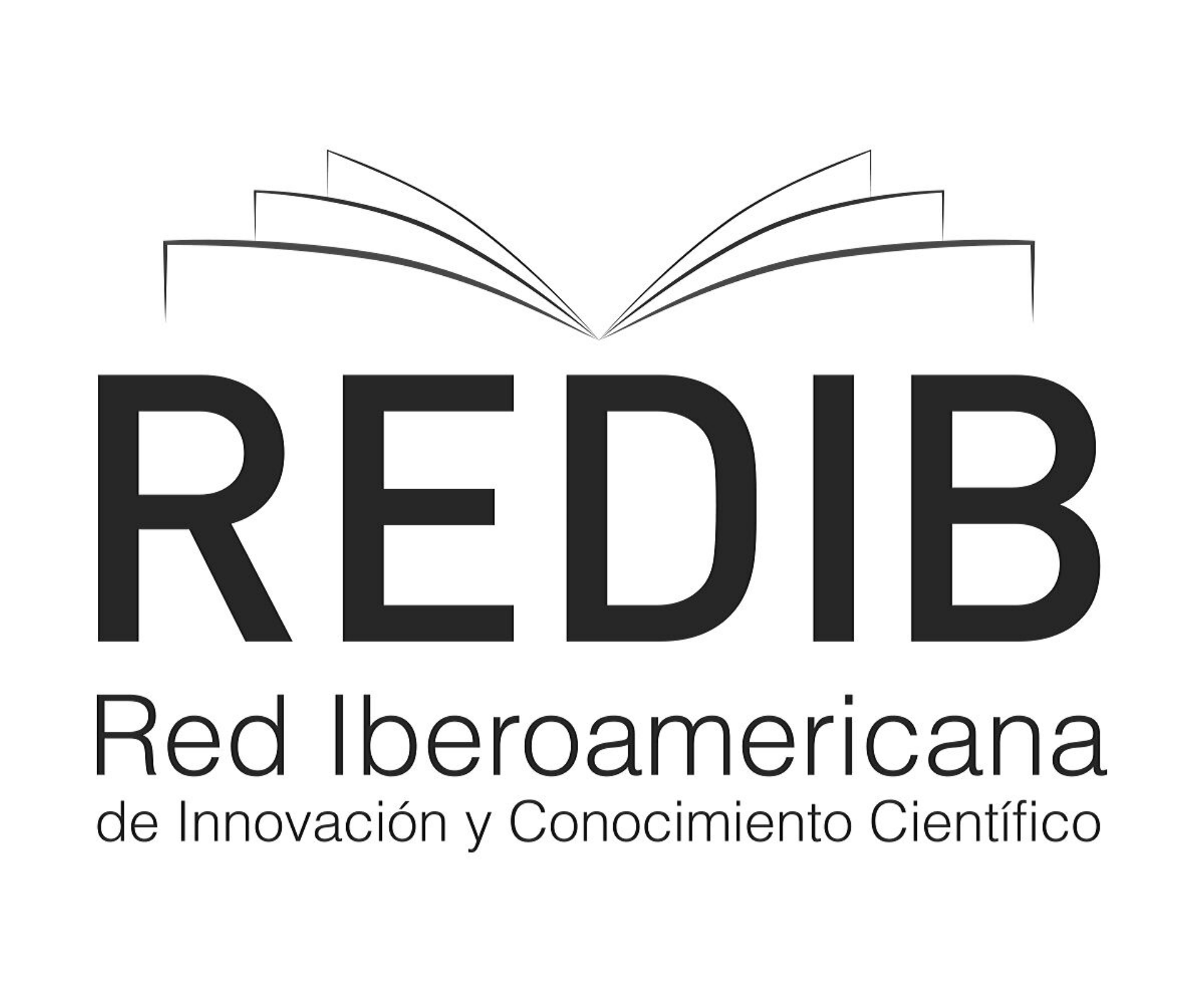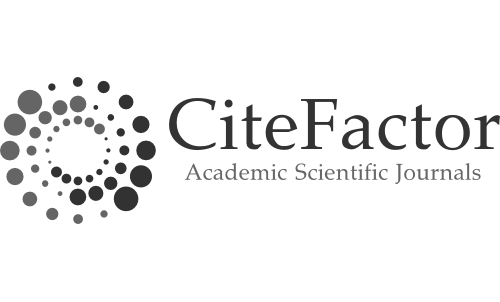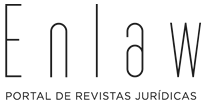Alternative Law and social movements: the popular university legal advisory and link with social struggles
DOI:
https://doi.org/10.21708/issn2526-9488.v3.n6.p158-171.2019Abstract
The Popular University Legal Advisory has been presented in Brazil as a space of possibilities for practical reflection around the Alternative Law, being inserted in the panorama of paradigmatic dispute in front of the traditional positivism predominant in the courses of Law. In this context, the objective of this paper is to trace stablished the link between AJUP and social movements, through the delimitation of their historical, social, political and ideological dimensions. As for the methodology, the study is guided by the deductive approach method, since it starts from the existence of alternative ways of using the Law in favor of the popular causes to reach the importance of the AJUP in this scenario and using the historical procedure method, using bibliographic and documentary research techniques. With the research, it was realized that the AJUP’s act as instruments of struggle of the popular classes in their claims, bringing them close to the recognition and strengthening of their rights, in addition to training students and professionals more sensitive to social struggles. Thus, it is inferred that the connection of AJUP’s with social movements not only increases the fight for rights of social minorities, but also increases the citizenship and critical reflection of the popular legal advisors themselves.
Keywords: Popular Legal Advisory. Social movements. Alternative Law.
Downloads
Published
Issue
Section
License
Copyright (c) 2019 UFERSA's Law Review

This work is licensed under a Creative Commons Attribution-NonCommercial-NoDerivatives 4.0 International License.
Ao enviarem seus artigos, os autores concordam com os seguintes termos: 1. Cede-se à REJUR, gratuitamente e sem regime de exclusividade, seus direitos autorais; 2. Confere-se à REJUR os direitos de primeira publicação, permitindo-se o livre compartilhamento dos artigos veiculados em formato PDF; 3. Divulgações posteriores em periódicos, livros, obras coletivas ou eventos de qualquer natureza devem fazer referência à REJUR como meio de publicação original; 4. Os autores são responsáveis pelo conteúdo constante de seus textos; 5. o trabalho será licenciado também sob a Licença Creative Commons Atribuição-NãoComercial-SemDerivações 4.0 Internacional.

